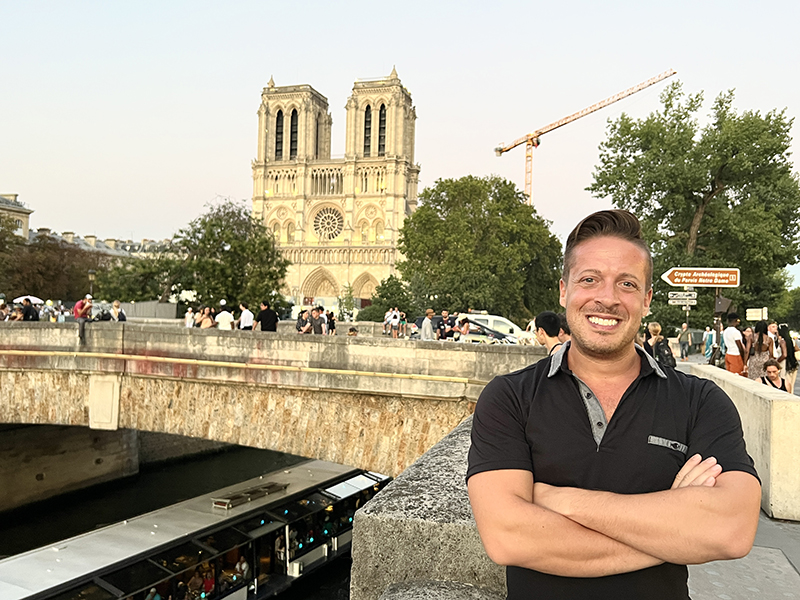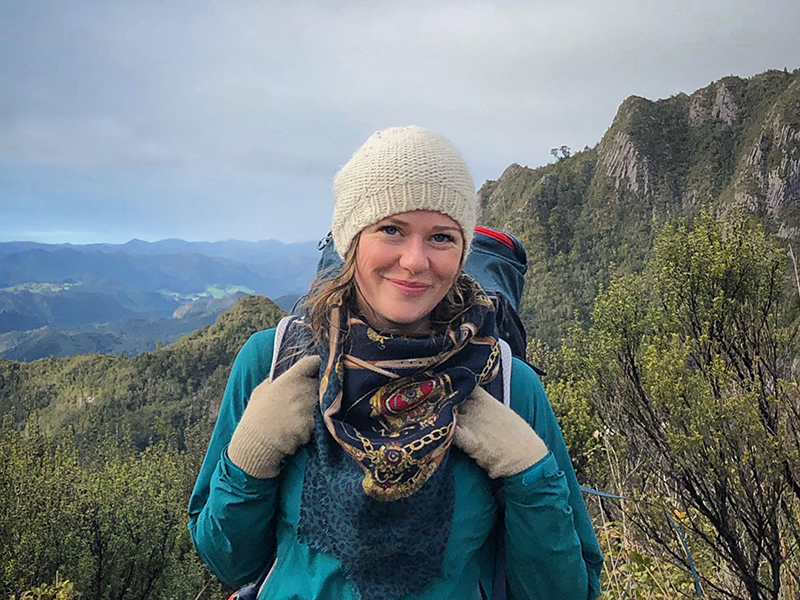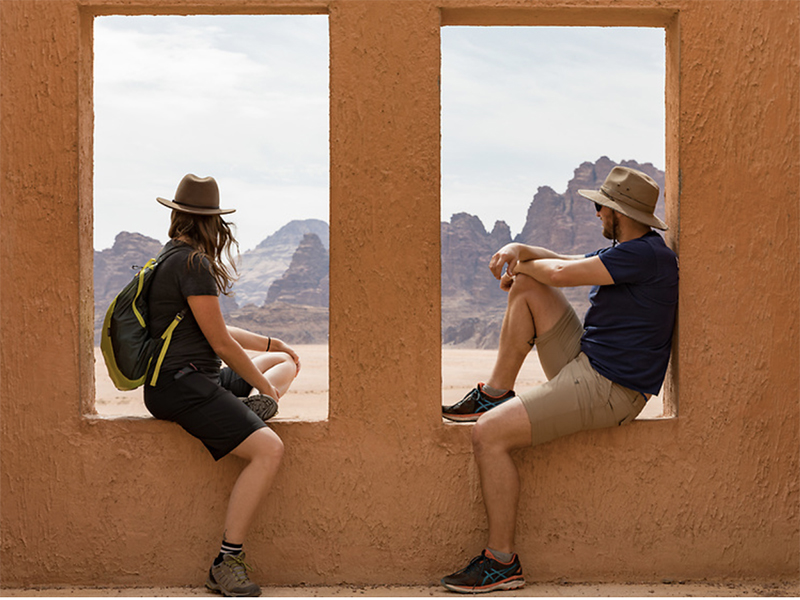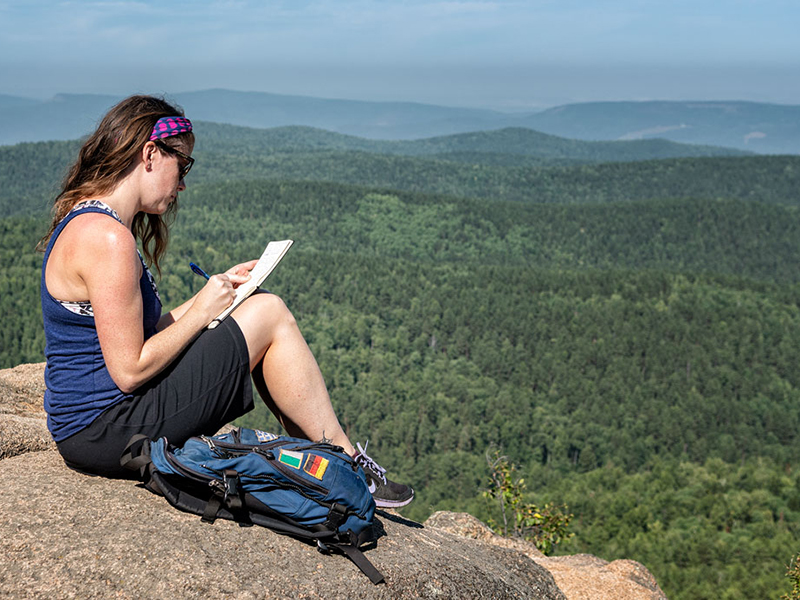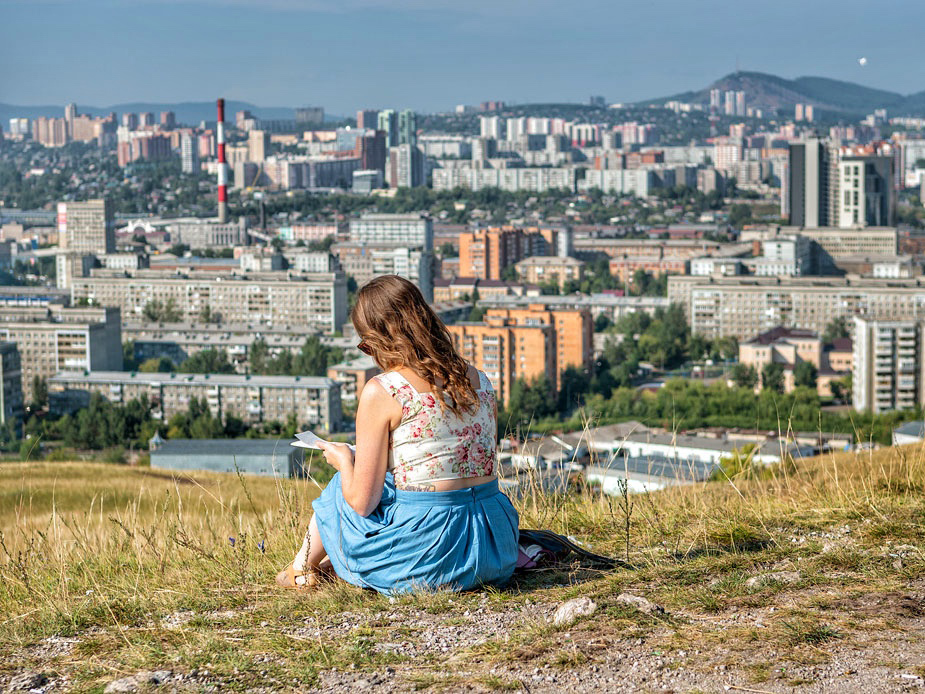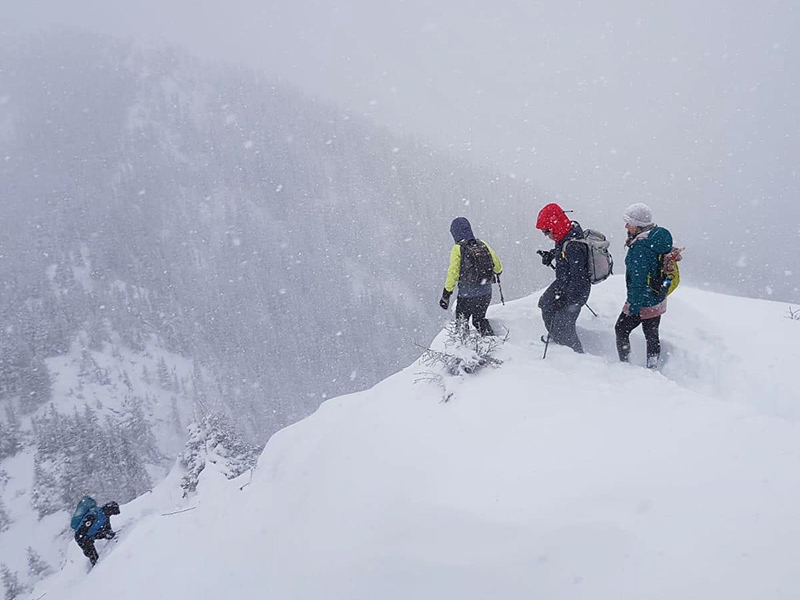An inside look into the different sectors of travel journalism
Journalism alumni Michael Pihach, Charmaine Noronha and Jessica Wynne Lockhart share how they got into the travel journalism industry after graduation. They cover various beats of writing for travel workers, content creation and tourism guides.
Michael Pihach (external link) , ‘10, is a managing editor for PAXnews.com under PAX Global Media, a go-to resource for travel professionals. He oversees the Toronto editorial team, writes articles and is responsible for PAX’s daily and monthly publications.
How did you get your start in the travel journalism industry?
Did I think of myself being a travel writer while at j-school? No, not at all. Before I went to (TMU), I was an intern at a local magazine that existed at the time. It was a gay magazine called fab, this is pre-social media, pre-Facebook. It was a thick, free magazine that you could get on the streets of Toronto that had people profiles, local gossip, and party listings and reviews. I was working at that magazine before going to school, eventually, I did go into j-school. I wanted to work in television when I was there, which is something I eventually did. After graduation, I worked in magazines for a little bit and then I went into working for a bunch of television shows, as a writer, and videographer. I worked at CBC, Steven and Chris show, which is no longer on. I did a lot of daytime talk shows, so on The Marilyn Denis Show, I worked there very briefly, in their audience department. I did that for a good six or seven years and it was transitioning from that career that I just literally fell into travel writing. I think because over the years, I had developed so many different skills, whether it was writing, shooting, or editing videos, I had done a little bit of travel writing. An opportunity came along to start freelancing for a travel industry publication. I started as an on-call freelancer, building relationships, and doing a good job and here I am, god, I think it's seven, seven years later, and I'm now the managing editor.
What does being a managing editor at PAXnews entail?
So the majority of our audience is travel advisors and travel agencies, people who sell travel, but our readership also includes people who work for airlines, cruise lines, hotels, resorts, tourism boards, and insurance companies, it's the entire travel and tourism sector together. So when you hear of a travel writer, people often think of someone who spends their days at far-flung destinations, writing about beautiful beaches and beautiful hotels. And yes, to a degree, my job does entail that, but it's just one small piece of the editorial pie.
I take on many beats, that could be business news (acquisitions, bankruptcies involving airlines or hotels). I cover breaking news, so whenever the government lifts or adds a travel restriction, that's a very important story to our readership, so I cover that. I also write stories about entrepreneurship. So, you know, features about travel advisors that do extraordinary things to build their business. Also, event coverage, I go to a lot of travel agent conferences, and tourism board workshops that are trying to appeal to the travel industry. And then I also go to a lot of different places, inaugurals for new cruise ships or the launching of a new aircraft. It's really exciting to have a front-row seat to all the products, places, and people that shape the travel industry and keeping readers up to date about the latest information is something I am very passionate about.
What are some of your favourite memories and moments while in the travel and tourism industry?
The position has given me access to some of the most influential people in the travel industry, whether that's, you know, an airline CEO, or a travel advisor that sells millions plus dollars in business every year, and they have the opportunity to take their customers to amazing destinations. I like that aspect of it because you're constantly meeting creative entrepreneurs, people who excel at building something from nothing.
I've been on some of the craziest travel assignments. One was flying to Doha, Qatar for a day to experience the hotels, aircrafts and getting to go out to the sand dunes and then coming right back to Canada. It's been a wonderful job that's taken me to so many places, I go to Mexico and the Caribbean a lot. It's allowed me to stay on top of travel trends, the newest products that are out there, and the newest resorts. Canadians work hard, and they save up a lot of money to travel. So I think I'm in a very privileged position to see a lot of the new resorts and products first and report back on them, but also report practical information about different products, what resorts are family-friendly, what resorts are great for snorkelling, those very practical tips, which are communicated to travel agents who better inform their clients. So there's a real educational aspect to my job too.
Charmaine Noronha (external link) , ‘99, is a freelance journalist and travel writer. She’s explored various roles and publications, Noronha has worked with The Toronto Star as a reporter, Vervegirl Magazine as editor-in-chief, Associated Press and HuffPost Canada.
Did you always see your career headed toward travel journalism?
I don't think I even knew there was something like travel writing, I knew that I wanted to be a journalist. During my career, I’ve always been a journalist. I first started at Toronto Star, Youth Culture and then my longest role was at Associated Press for 11 years covering Canadian news for an international audience. Then I was an editor at HuffPost in the lifestyle department and now I freelance.
I always knew I wanted to pursue journalism because I loved writing. I transitioned into travel after I started backpacking and I would just write about it when I returned and worked to get my stories published. It all blossomed out of that and I discovered this amazing world of travel writing and have been pursuing it ever since.
What is the process like when you’re on assignment?
You usually get contacted by a PR company, who pitches you on their trip or invites you on their trip. Then you indicate your interest, and it’s become a lot more common for them to review a confirmed assignment before having you come on board, which can be tricky and add more time to the process. Depending on the assignment, you've got a significant amount of email correspondence to coordinate the actual logistics of the trip. Once it starts, you are flown to the destination and are met with either a representative or transport provider once you’ve landed. From then on, you are on their itinerary for the trip, and once you are on it, you’re conducting research, taking in a lot of information because of all the tours. A lot of times you're meeting a ton of different people from hotel managers to chefs to PR destination reps. So generally, you're taking notes, taking a lot of photos. Now, you are often posting to social media as well. After the trip, you’re pitching again or completing the story.
What do you wish more people knew about travel writing?
It's harder than it may look. As you can imagine, in all sorts of aspects of journalism, the markets are getting more and more competitive. Travel writing in some ways isn’t what it used to be in regards to when we had more robust newspapers and magazines and even just more outlets looking for travel stories in a more traditional sense. Now we have the online world, which has created another industry for travel. The competition is significant, it can be difficult to get editors to look at your pitches when they have so many others coming in. The press trip itself can sometimes be a bit tricky because you have to follow a very dedicated itinerary and it can be a bit difficult to get a unique story from that set itinerary. A lot of times, I'll want to stay on a little bit longer to explore the place on my own to see if I can get a story that maybe no one else has written about. That's the other tricky part, you can't keep writing the same stories and the ones that are the most engaging are generally not the ones that are like the top 10 things to do.
Jessica Wynne Lockhart (external link) , ‘08, is an award-winning Canadian freelance journalist and editor. Her work frequently examines the intersection between science, conservation and tourism. Lockhart’s work has been featured in Smithsonian, Outside, TIME, The Toronto Star, Australian Women’s Weekly and more.
How has your career evolved since graduating?
When I originally graduated, I started working for an organization that did international development in Africa, Central America, the South Pacific and South America. I worked mainly in a field office capacity, working mainly in Toronto, but I did do some field staffing as well. I worked in remote medical humanitarian missions in Guyana, so I was working with a team of multi-faith medical practitioners to give healthcare to people in very remote communities. Then I did start freelancing and when I started I was writing a lot for publications. I was able to connect with friends from my graduating year and freelance with them. I covered many different beats, I did business, graphic design, and manufacturing, and I wrote about literally anything.
Throughout this time, I was and still am the contributing editor for Verge Magazine, a small Canadian publication that focuses on travelling with purpose (studying, working and volunteering abroad). It linked in nicely with my background in international development, because I understand the volunteering abroad sector well. I’d take about a month off every year to travel and because I travelled a lot, people associated me with travel writing despite not working in that beat a lot. But, because I had this reputation as somebody who loved to travel, people started coming to me with travel assignments. I would say probably most of my business focused on travel when I moved to Sydney, Australia in 2015.
What are the differences you’ve noticed between travel bloggers and travel journalists?
People will label me as a travel blogger all the time, which is not what I am. I don't want to dismiss the work that content creators, influencers, or travel bloggers do. I think that they're talented and driven people, but we have very different skill sets. In j-school, they drill you on the ethics of journalism and taking things for free. Travel writing is much like being a beauty editor or something, you're getting products for free. Beauty editors, they're getting free samples and tech editors, they're getting products for free because they couldn't afford to buy all of the stuff on a journalism budget. Likewise, I couldn't afford to take a $2,000 trip for a $500 commission. It just does not pan out financially.
The way the business works is that you typically will end up getting hosted by the destination organizations or by PR agencies, and they'll pay for the trip upfront. The business model is roughly the same for content creators or travel bloggers, they're getting hosted, and sometimes even getting paid by the hosts. The reason why is that the travel blogger or content creator, depending on the contract, is obliged to publish or write something specific about their hosts. Their hosts will give them things to cover. Whereas a travel journalist, I’m under no obligation to cover something in a particular manner. The main difference is that travel journalists and the publications we're writing for still maintain editorial control over what we feature and how we're writing about it, which often isn't the case for content creators. We're all getting free stuff. Yes. But there are different obligations for how and what we cover.
I would say, generally speaking, because I do have this background, and my journalism degree, I think that makes me a little bit more old school when it comes to how I encourage my travel writing. Some travel writers just get into it with absolutely no background in journalism, which is cool, too, but I think what they're missing out on is the basic principles and ethics of journalism, which really should apply. Travel journalism is considered fluff, but there are a lot of really important principles that you can pull into your work. For example, fact-checking, I spent a lot of time working as a freelance fact-checker when I first started freelancing, and I understand how critical and how important it is. Travel writing can break down stereotypes it conveys to people, the world beyond our worlds, it breaks down barriers and has the potential to do a lot of good in the world. If you're just regurgitating what PR people tell you, that doesn’t work. You need to do solid research and interviews. So I would say that's probably the biggest difference, I think that there are different ethical considerations. Also, understanding those core principles of just making sure that your work is sound, and that you're trying to get diverse interview sources, are critical basics of what makes for good travel writing.
What are some lessons you’ve learned since starting your career?
People want answers to things and service writing, and lifestyle writing isn’t and doesn’t have to be fluff. Also, just acknowledging that travel is an immense privilege and I think for people who want to get into travel writing is understanding that early on. The lens through which we view and experience travel is going to differ greatly on our sexual orientation, our gender, our race, our COVID vaccination status, and our passport of origin. All these factors affect how and when you can travel, and how you're going to experience destinations abroad. The unfortunate thing is that travel writing historically, and travel marketing have been directed at straight, able-bodied white couples. You see it all the time, you see the billboards on the side of the bus, where it's a couple, they're white, and holding hands while walking down the beach. That's not all travellers, that's not what all travellers look like. It's really important for anybody interested in travel writing to understand that when you get into it, you have to understand that your audience is not necessarily somebody who looks like you. I think that that point for me, was driven home because I started dating a woman when I was in my early 30s. It changed the countries that I could access. So there are places that I've always dreamed of going to and now I'm reconsidering A: whether I'd feel comfortable travelling there and B: what I feel comfortable promoting as a destination. I don't know the answer to those questions, but it's made me rethink travel for everyone.
These interviews have been edited for length and clarity.
For journalism students interested in pursuing travel journalism, alumni Rod Charles and the Ontario Chapter of the Travel Media Association of Canada established the TMAC Diversity, Equity and Inclusiveness Award to reward a journalist who can address the racial, diversity and inclusiveness issues in the past, the movement we are seeing to combat racism today, and propose ways that we can make the future better. Each fall, j-school students are invited to submit a travel-related story, domestic or international, highlighting issues of hate and offering suggestions of how positive changes can be made.

